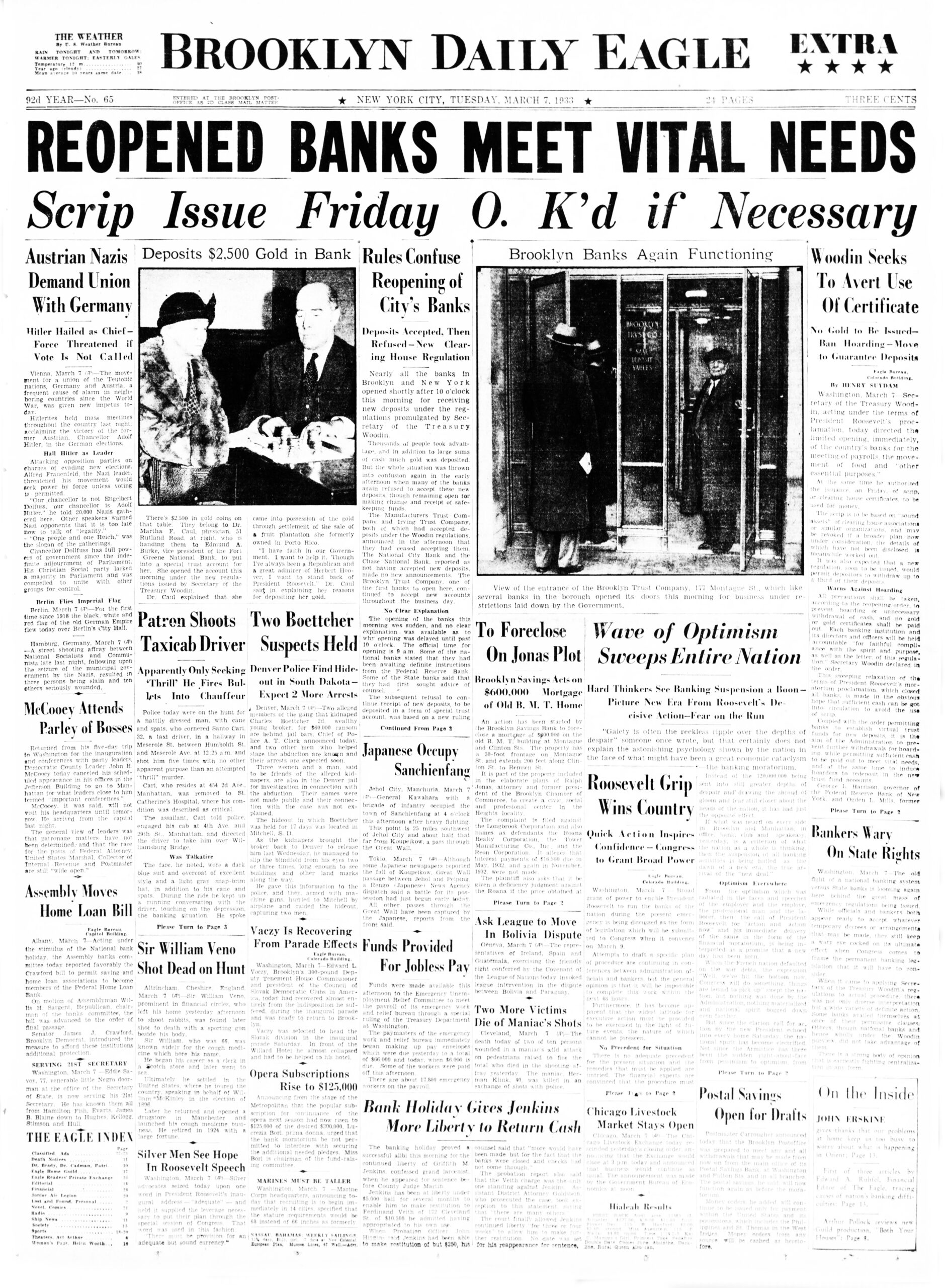March 7: ON THIS DAY IN HISTORY

ON THIS DAY IN 1918, the Brooklyn Daily Eagle reported, “WASHINGTON — The Department of Labor today formally announced the transfer of the Ellis Island immigration station to the Army and Navy for shelter of wounded soldiers and sailors. The immigration station, which really consists of three small islands connected by bridges, will be divided as follows, according to Acting Immigration Commissioner Uhl: The War Department will take over the inspection buildings, all of the hospitals, the nurses quarters and part of the detention centers. It will take active charge at noon tomorrow. The Navy Department has already taken part, and will soon take all of the dormitory room, the baggage room and what used to be the railroad ticket office in which immigrants bound for points inland were routed to their destinations. The Immigration Bureau will retail its present administration offices and just enough detention space to care for the small number of immigrants detained for inspection. The interned Germans, who have at times numbered several hundred, are already being moved to inland prison camps. All of them will bid farewell to the island before the week is over. So small has the immigration been of late that the Ellis Island officials have found that they can make all of the necessary first inspections right on board the ships as they come into the harbor.”
***
ON THIS DAY IN 1933, the Eagle reported, “WASHINGTON — Secretary of the Treasury [William H.] Woodin, acting under the terms of President [Franklin] Roosevelt’s proclamation, today directed the limited opening, immediately, of the country’s banks for the meeting of payrolls, the movement of food and ‘other essential purposes.’ At the same time he authorized the issuance, on Friday, of scrip, or clearing house certificates, to be used for money. The scrip is to be based on ‘sound assets’ of clearing house associations or similar organizations, and may be revoked if a broader plan now under consideration, the details of which have not been disclosed, is meanwhile worked out. It was also expected that a new regulation, soon to be issued, would permit depositors to withdraw up to a third of their deposits. All precautions shall be taken, according to the reopening order, to prevent hoarding or unnecessary withdrawal of cash, and no gold or gold certificates shall be paid out. Each banking institution and its directors and officers will be held accountable ‘for faithful compliance with the spirit and purpose, as well as the letter of this regulation,’ Secretary Woodin declared in the order. This sweeping relaxation of the terms of President Roosevelt’s moratorium proclamation, which closed all banks, is made in the obvious hope that sufficient cash can be got into circulation to avoid the use of scrip.”

Brooklyn Boro
View MoreNew York City’s most populous borough, Brooklyn, is home to nearly 2.6 million residents. If Brooklyn were an independent city it would be the fourth largest city in the United States. While Brooklyn has become the epitome of ‘cool and hip’ in recent years, for those that were born here, raised families here and improved communities over the years, Brooklyn has never been ‘uncool’.